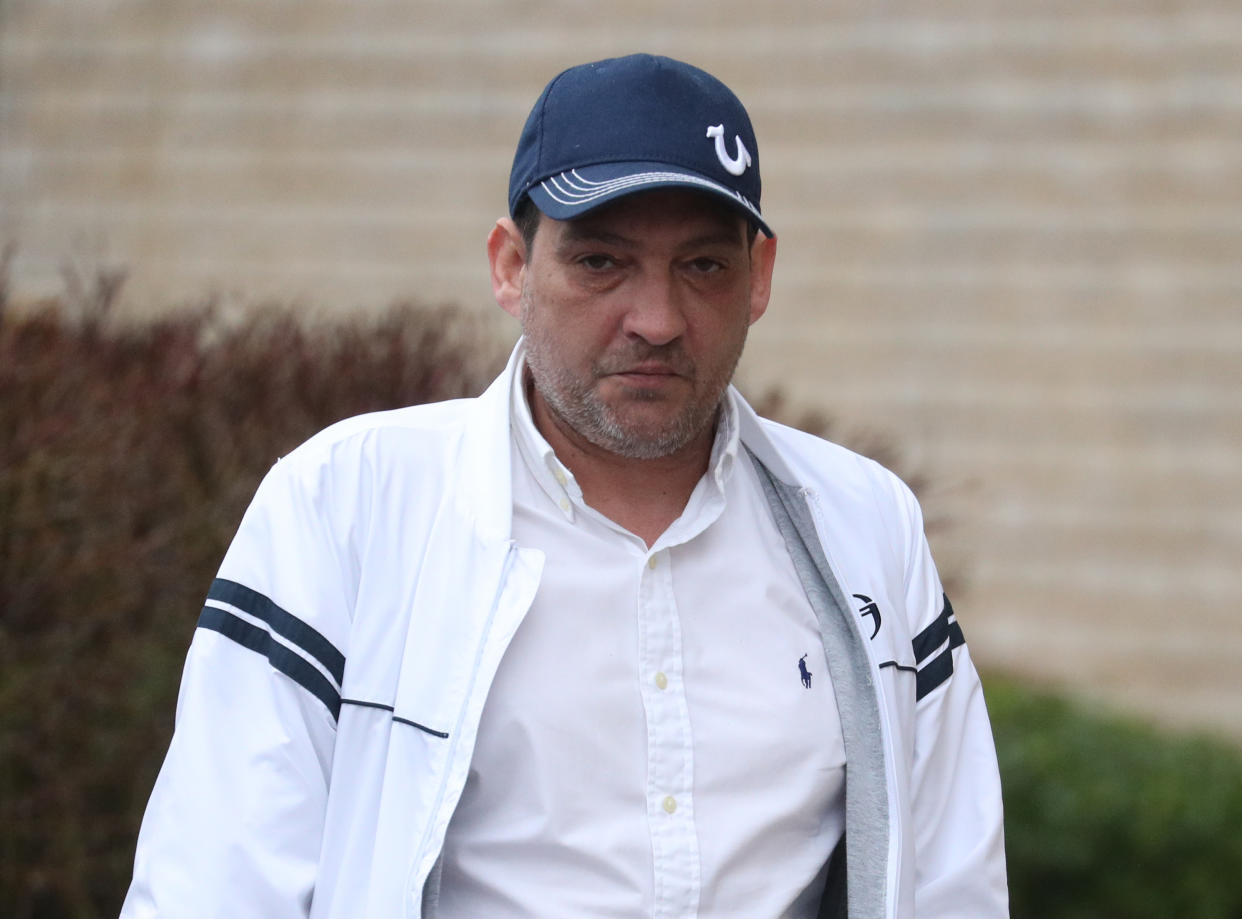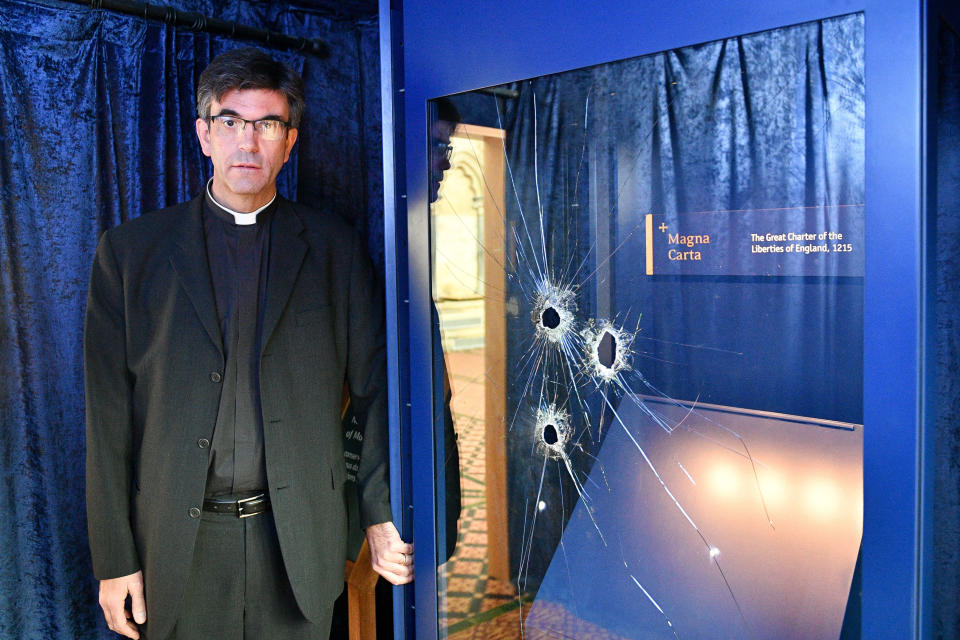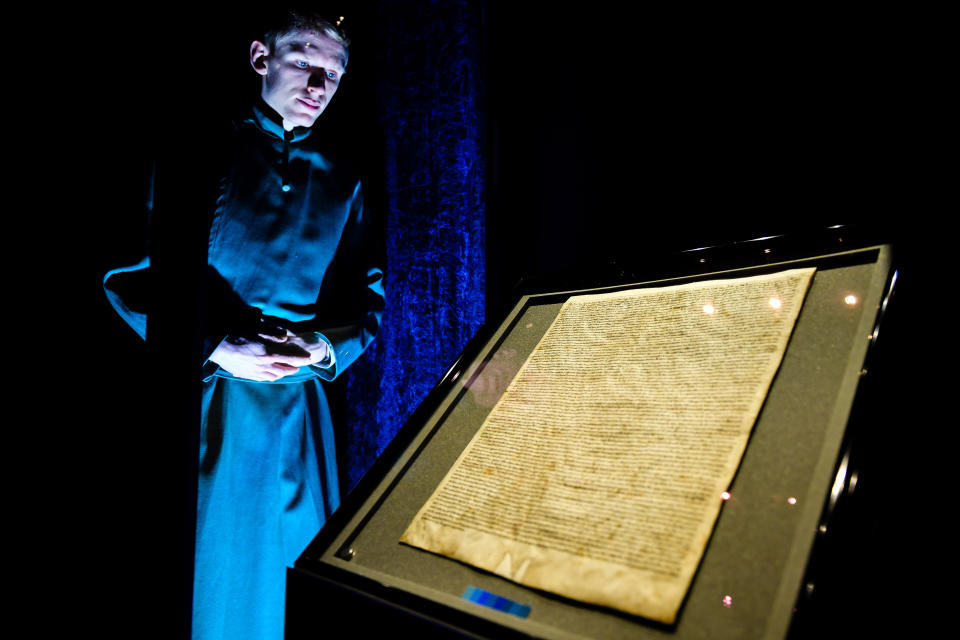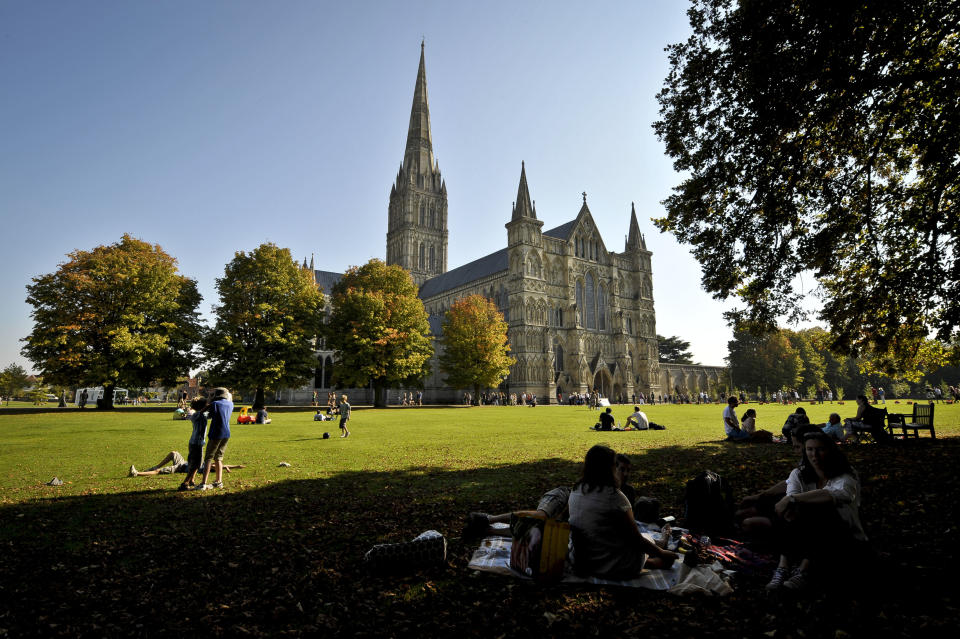Jail for man who tried to steal Magna Carta which he believed was fake

A man who attempted to steal a version of the Magna Carta which he believed was fake has been jailed.
Mark Royden, from Canterbury, used a hammer to smash the security case containing the historic document at Salisbury Cathedral, Salisbury Crown Court was told.
He had scoped out the building for security but after he attacked the case he was pursued by onlookers and detained.
Royden, 47, later told police he doubted its authenticity. He was found guilty at Salisbury Crown Court of attempting to steal the document and causing criminal damage to its display case, which cost £14,466 to repair.
Sentencing him to four years in prison on Friday, judge Richard Parkes QC said: “This was a determined attempt on a document of huge historical importance.
“Magna Carta is a document of huge importance to our country and many other countries that share our democratic traditions.”

Royden’s trial heard that he plotted a route that would avoid CCTV cameras at Salisbury Cathedral and brought a hammer, gloves and safety googles with him in October 2018.
The court was told he turned a camera away to try and avoid being recorded and set a fire alarm off as a distraction before smashing the security case.
He was then chased by a pair of American tourists and staff working at the cathedral.
Leigh Chalmers, a cathedral outreach worker, said in the trial that she and others struggled with Royden.
She said: “The Americans were shouting, ‘He’s trying to steal the Magna Carta, stop him’, I was saying ‘Please, please stop him’.”
He was caught by stone masons working at the cathedral and he said: “Your security’s s***.”
Prosecutor Rob Welling said Royden made comments that he should “get a medal for what he had done” and “he could have done more damage if he had a samurai sword”.
Welling said Royden made an “odd prepared statement” to police in which he “doubted” the Magna Carta’s authenticity.

His comments included: “You can’t talk to me about the holy grail so to speak, if you find a bag on the floor which says cocaine on it, you would have to test that bag forensically, as for your holy grail, you would need a carbon test and a trace element test.”
Judge Parkes praised the actions of people who stopped Royden, including Matthew and Alexis Delcambre, from Louisiana in the US.
He called on Major General Ashley Truluck, high sherrif of Wiltshire, to award Matthew £1,000 and £500 to Gary Price, a cathedral employee.
The judge said said: “This is a story of a few good people acting alertly and bravely and they deserve our sincere thanks.”
“Mr Royden wishes me to advance he couldn’t plead guilty to the offences because there was a Russian flag on the cathedral at some point and he didn’t feel he could advance a guilty plea because that may implicate him as a Russian spy because of Theresa May.”
Magna Carta, issued by King John in response to a political crisis in 1215, is a key part of the British constitution and a document still held in high esteem today.
Though many of its provisions have been repealed, it challenged the authority of the king and notably allowed for free men to be given a fair trial, the British Library said, and established for the first time that the monarch was subject to the law.

Royden, who has 23 previous convictions covering 51 offences including theft and criminal damage, including against items of “the establishment”, suffered brain damage in a car accident in 1991 and is helped by a carer.
He had spray painted Exeter police station’s doors, attacked council benches and put a concrete block through a solicitor’s firm’s windows.
Nicholas Cotter, defending, said Royden had become “a pest and a pain” who was “mired in drink and drugs”.
“He is a caring, kind and helpful man and tries to do his best by people but he is blighted by demons,” Cotter said.
He added: “Mr Royden wishes me to advance he couldn’t plead guilty to the offences because there was a Russian flag on the cathedral at some point and he didn’t feel he could advance a guilty plea because that may implicate him as a Russian spy because of Theresa May.”
The copy in Salisbury was back on display three months after the attempted theft, and the damaged case was to be made part of the exhibition which tells the Magna Carta’s history.


